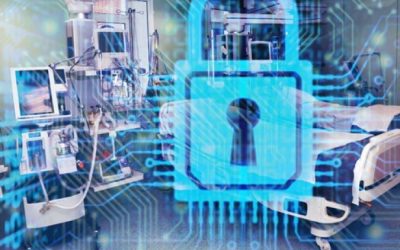Healthcare is unprepared for cyber attacks and as the cybercrime threat landscape for medical devices and electronic health records is evolving at unprecedented rates this lack of preparation does not bode well. The malicious intent of financially motivated or state-sponsored cyber-criminals was best served by victimizing financial institutions, power infrastructure and the business sector.
The sheer wealth of profitable consumer information stored within the servers and IT networks powering these industry segments have attracted cyber attack interests for decades. At the same time, these industries are investing vast resources to strengthen their security posture. Cyber criminals pursuing easier targets are aiming for the healthcare industry instead, where a similarly vast deluge of sensitive personally identifiable information powers increasingly digitized healthcare services from less-secure network infrastructure.
Inherent Loopholes as Healthcare Is Unprepared for Cyber Attacks
Healthcare institutions excel in medical practices but are inherently prone to security attacks. 2017 might have seen only a limited number of successful attacks, but make no mistake that healthcare is unprepared for cyber attacks and this is a very real threat, and here’s why. The future of healthcare centers are paperless medical practices. Digital patient information stored in network-connected servers is a recipe for disaster unless strong security defense capabilities are in place to ward off sophisticated cyber attacks. And that’s precisely the problem with the healthcare industry they are woefully unprepared for technology adoption.
While the government and the industry is pushing to embrace Electronic Health Record (EHR) systems, the same attention is not given to invest in strong security solutions, technologies, and processes across the widening industry of healthcare institutions, hospitals, surgery centers and EMR/EHR management providers.
Equating Compliance to Security: Global regulatory authorities enforce strict laws to ensure security of digital health records and electronic systems used in the healthcare industry. However, these laws are designed to establish and maintain a minimum standard of security capabilities and practices. The risks could be far worse and varied. Therefore, it becomes more obvious why healthcare is unprepared for cyber attacks by maintaining compliance standards such as HIPAA do not translate into strong security capabilities.
Lack of Security Awareness: A significant proportion of life-threatening spearphishing and ransomware attacks are designed to exploit the human element. Random clicks to malicious links by unsuspecting workforce in the healthcare industry cost millions of dollars in damages. Inadequate workforce education and training on maintaining security of digitized records and new healthcare technologies is prevalent in the industry considering the simple root causes of these costly attacks.
Lack of Resources: Many healthcare institutions do not operate on the same IT security budget in comparison with financial and business organizations. A recent conducted by The Ponemon Institute finds healthcare organizations rate their ability to defend against cyber-attacks at a meager 4.9 out of 10.
Outsourcing May Alleviate Healthcare Industry Unprepared for Cyber Attacks
Healthcare institutes work to excel in the services they have to offer, and tend to outsource critical healthcare IT operations. These IT service providers are subject to strict regulations including HIPAA, whereas healthcare organizations cannot accurately assess the risk of business associates or ensure security of Protected Health Information (PHI) shared with them.








